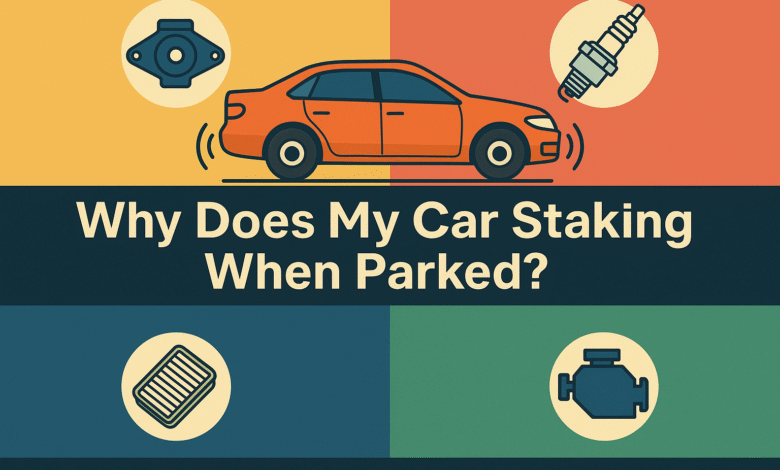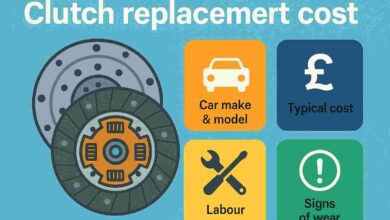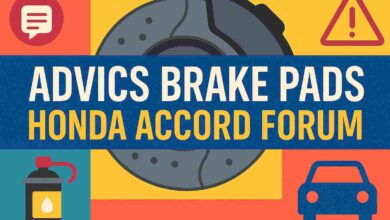Why Does My Car Start Shaking When Parked?
Understand the Real Reasons Behind Idle Vibration and How to Fix the Problem Efficiently

Introduction
If you’ve ever asked yourself, “Why does my car start shaking when parked?”, you’re not alone. Many drivers experience rough idle symptoms, which can signal deeper issues under the hood. When your vehicle begins to shake or vibrate at idle or stopped, it’s often a warning sign of mechanical or performance-related problems. From worn-out spark plugs to issues with the engine mounts, a wide range of potential causes can make your car shake even when it’s not in motion.
This article explores the possible reasons for a shaking car at idle, provides expert tips on how to fix the problem, and explains why bringing your car to a mechanic or service center may be necessary if DIY inspection isn’t enough.
Quick Fact: Why Cars Shake While Parked
| System Affected | Common Causes |
|---|---|
| Ignition System | Bad spark plugs, engine misfire |
| Mounts & Engine Block | Broken motor mounts, vibration at idle |
| Fuel/Air Intake System | Clogged filter, idle air control valve |
| Transmission & Belts | Faulty timing belt, RPM issues |
| Exhaust & Emissions | Valve issues, cylinder misfires |
Rough Idle: What It Feels Like and Why It Matters
Shaking While Idling or in Park
A car that shakes while idling may feel like it’s pulsating, trembling, or even bouncing slightly. This often becomes more obvious when the vehicle is in park or neutral. At this stage, engine movement is less restrained, causing the vehicle to shake if underlying issues are present.
RPM Instability and Idle Speed Problems
In many cases, idle speed can fluctuate due to air control valve problems or uneven amounts of air/fuel reaching the cylinder. A failing idle air control system can cause your vehicle to shake—especially when there’s an inconsistent RPM reading.
Ignition-Related Causes of Engine Shake
Worn-Out Spark Plugs and Ignition Misfires
Worn-out spark plugs can cause the engine to misfire, leading to a shaking car when idling. A misfire disrupts combustion and makes your engine shake, especially when no power is being transferred to the wheels.
Check Engine Light and Spark Plug Wire Issues
A flashing check engine light often accompanies misfire-related problems. Replacing faulty plugs and checking for wire damage can prevent engine misfire and restore proper idle behavior.
Mounting System and Transmission Issues
Broken or Worn Motor Mounts
One of the most common causes of shaking at idle is broken motor mounts. The mounts are designed to hold the engine attached to the car while absorbing vibrations. Over time, wear and tear can cause them to fail, making the car shake violently when in park.
Transmission and Engine Mounts Relationship
When you put it in drive or return to park, a faulty transmission mount can intensify vibrations. That’s why your vehicle shakes when shifting between gears or even just sitting still.
Air and Fuel Intake Issues
Clogged Air Filter and Uneven Fuel Delivery
A clogged air filter or dirty fuel system can deliver uneven amounts of fuel, causing an idle issue. The imbalance leads to rough idle or vibrate when idling sensations.
Idle Air Control Valve and Intake System Check
The idle air control valve regulates airflow when your car isn’t accelerating. If it malfunctions, it can easily start to shake your vehicle when idling. A proper intake system check can reveal dirty or failing components that need cleaning or replacement.
Exhaust System and Sensor-Related Problems
Exhaust Leaks and Valve Malfunctions
An exhaust leak or valve issue in the emissions system might be causing your car to shake at idle. These issues affect combustion stability and may trigger vibration felt throughout the cabin.
Sensors That Cause Idle Problems
Failures in sensors such as the MAF, MAP, or oxygen sensors can confuse the ECU and lead to poor air-fuel mixture. These sensors may result in your car vibrate when idling or misfires that shake the engine.
Drivetrain, Brake, and Tire Influences
Tire, Axle, and Steering Wheel Vibration
Though less common during idle, tires out of balance, axle issues, or problems in the steering wheel assembly can cause residual resonance. This might feel like the car is shaking even when stationary.
Brake Rotors and Shaking at Stops
In cases where the car start shaking during braking, warped brake rotors could be the cause. While this generally occurs while in motion, faulty brake components can amplify existing idle vibration.
When to Seek Professional Auto Repair
Inspect or Diagnose the Problem
Use an OBD-II tool or seek car repair services to inspect the issue. Some signs, like shakes when idle or shake or shudder when the engine is running, might only be fixable by a certified technician.
Take Your Vehicle to a Mechanic
If you’re dealing with severe shaking while idling and can’t isolate the root cause, it’s time to visit an auto repair shop. The pros can check for symptoms and causes, clean sensors, or replace parts like spark plug wires, timing belt, or air control components.
Conclusion
Understanding the causes of your car’s shaking while parked is essential to proper car maintenance. Whether it’s a simple idle air control issue, bad spark plugs, or a more serious engine to misfire situation, acting early prevents bigger headaches down the road. If your car shakes when stopped or begins to shake or vibrate when idle, don’t ignore it.
Pay attention to these signs, and if needed, bring your car to a service center for diagnosis. Timely intervention can save you money and ensure your vehicle shakes no more.
Frequently Asked Questions (FAQ)
Why does my car vibrate when idling in gear or park?
This usually stems from a misfiring cylinder, broken motor mounts, or issues with the idle air control valve.
What causes a car to shake violently while parked?
Bad spark plugs, faulty engine mounts, or a clogged intake system can all lead to violent shaking when parked or stopped.
How do I fix rough idle at home?
Clean the throttle body, replace old plugs, inspect vacuum hose connections, and scan for sensor errors using an OBD-II tool.
Is it safe to drive a car that shakes at idle?
While sometimes safe for short distances, shaking indicates deeper problems. It’s best to diagnose and fix the problem promptly.



